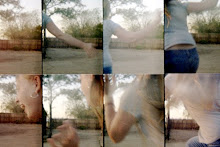Believe it or not, that sentence is grammatical. It's an example of what's known as a "garden path sentence"--a sentence "for which the responder's most intuitive interpretation is an incorrect one, ultimately luring them to an improper understanding of it." So basically they're sentences you begin reading in one manner, before a word or tense conflicts with the original path of comprehension and forces you to backtrack and look for other possible structures.
"The raft floated down the river" makes sense until you reach the word "sank."
Wtf?
The raft, that was floated down the river, sank.
OH! :)
Such sentences are rare in verbal communication due to stress and tone of voice but in written word, meanings often get so tangled up in tenses. The "syntactic ambiguity" is fun to read though. You realize:
"the old man the boat" means "the boat is manned by old people,"
"the man whistling tunes pianos" means "the man, who is whistling, also tunes pianos,"
"the woman returned to her house was happy" means "the woman, who was returned to her house, was happy,"
and "the tomcat curled up on the couch seemed friendly" means "the tomcat that was in a curled-up position on the couch, seemed friendly."
On a related note..."crash blossoms?" Headlines gone wrong. Crash blossoms are newspaper headlines with wild and sometimes humourous syntactic ambiguity, such as "Squad helps dog bite victim" (The squad helped the dog bite a victim? No no, the squad helped a victim of a dog bite!), "Man shot in chest, leg knocks on door for help" (A man was shot in the chest, and a leg knocks on the door for help? No: the man, who was shot in the chest and leg, knocked on a door for help.) and "Robot helps stroke victims in Portland" (The robot was stroking victims in Portland? OH, the robot was helping victims of STROKES in Portland.)
The girl writing the blog giggled.
Subscribe to:
Post Comments (Atom)

No comments:
Post a Comment